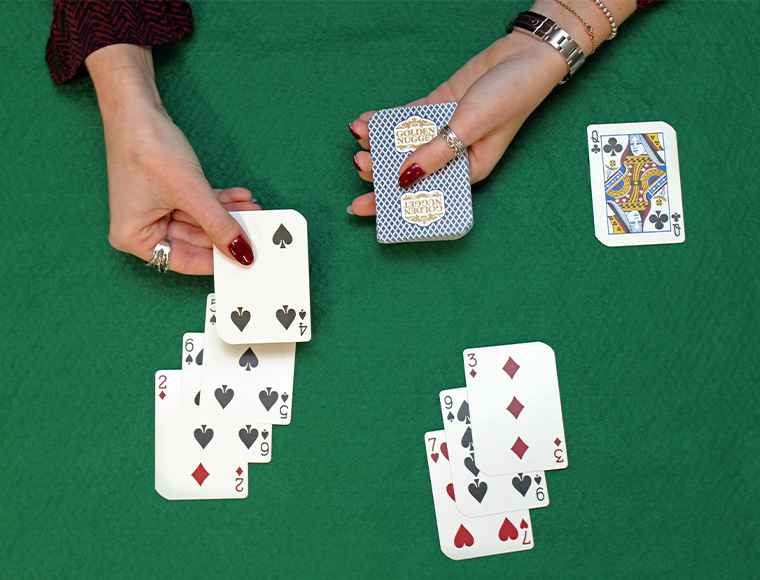Whether you call it Blackjack (in the United States), Pontoon (in Great Britain) or Vingt-et-Un (on the Continent), Twenty-One is the most widely played casino banking game in the world.
And like other popular games, it has had many variations since it was introduced as Veintiuna (meaning “Twenty-One”) in 17th century Spain before making its way into France (and Napoleon’s heart), Germany, England and 19th century America where it earned the nickname “Blackjack” during the Klondike Gold Rush. (“Blackjack” is a name for zincblende, which often signals a gold or silver deposit.)
Even today, Blackjack has more than 100 rule variations. What all the versions have in common is a betting premise in which the players play the dealer rather than one another. The objective, of course, is to get to 21 points or as close to that without going over. (Cards from 2 to 10 are worth their number value, while face cards — Jack, Queen, King — are worth 10 points and aces either one or 11 each. Thus the game lends itself naturally to card counting, which, contrary to popular belief — and a major plot point in the estimable 1988 movie “Rain Man” — is not illegal. You may, however, have to be a savant on the order of the film’s Raymond Babbitt (played by Dustin Hoffman) to do it successfully.





